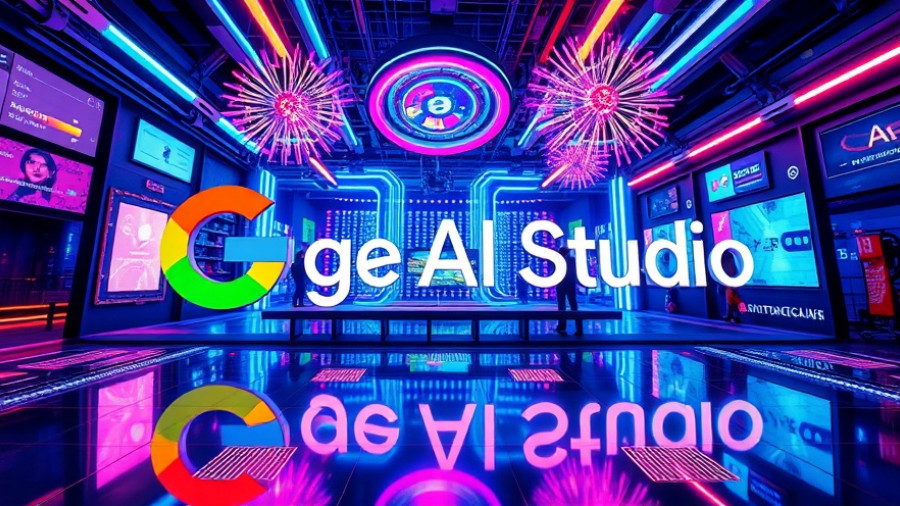
How AI and Cloud Technologies Are Shaping Business
In today's fast-evolving tech landscape, artificial intelligence (AI) and cloud computing are not just buzzwords—they're powerful drivers of growth in the software industry. These technologies help businesses streamline processes, enhance user experience, and make data-driven decisions. For professionals, business owners, and marketers, understanding this shift is crucial as it impacts everything from productivity to customer engagement.
The Role of AI in Digital Marketing
AI's influence on digital marketing strategies cannot be overstated. With its ability to analyze vast datasets, AI empowers marketing teams to automate processes and refine targeting. For instance, personalized content based on user behavior enhances the effectiveness of campaigns, creating opportunities for increased conversion rates. As brands harness AI technologies, they shift towards data-driven marketing that prioritizes customer preferences.
Cloud Computing and Scalability
Cloud computing provides businesses the flexibility they need to scale operations efficiently. By utilizing cloud-based software, organizations can manage customer interactions, sales, and data analytics from any location. This accessibility is particularly valuable for teams that are collaborating remotely. Cloud technologies facilitate the smooth flow of communication and collaboration, ensuring that all team members are on the same page, regardless of where they are based.
The Impact of E-commerce on Marketing Strategies
E-commerce is another area where AI and cloud technology are driving significant changes. As online shopping continues to grow, marketers must adapt their strategies to meet new consumer expectations. Implementing AI-driven tools allows marketers to analyze customer interactions on a granular level, enabling insightful decisions regarding inventory and promotions. Moreover, cloud solutions offer streamlined payment gateways and enhanced customer service channels, improving the overall shopping experience.
Future Trends in Marketing Automation
Looking ahead, the integration of AI and cloud technologies into marketing automation will redefine best practices. We can expect to see increased emphasis on tools that offer predictive analytics, enabling businesses to forecast trends and consumer behavior accurately. Additionally, personalized marketing experiences will become more sophisticated, with automation tools helping to tailor messages based on individual user journeys.
Creating Actionable Marketing Strategies
The fusion of AI and cloud solutions provides marketers with the tools they need to develop actionable strategies. Leveraging AI in digital marketing not only helps optimize campaigns but also accurately measures marketing ROI, allowing business owners to allocate budgets more effectively. As a result, developing a well-rounded approach that capitalizes on these insights will be essential for future success.
Empowering Teams with Enhanced Collaboration Tools
As technology evolves, so does the need for effective collaboration tools. With cloud computing, marketing teams can work cohesively, regardless of physical location. This seamless integration of systems enables real-time brainstorming and collaboration, leading to faster project completion and innovative solutions tailored to customer needs. The investment in cloud-based platforms ultimately enhances productivity and fosters creativity among team members.
Conclusion: Embrace the Transformation
For professionals and business owners, embracing AI and cloud technologies is no longer optional; it's essential. As the software market continues its digital transformation, those who leverage these tools will set themselves apart from the competition. The key takeaway? Organizations must stay informed about these trends and invest in technologies that allow them to adapt swiftly to the changing digital landscape.
 Add Row
Add Row  Add
Add 




Write A Comment